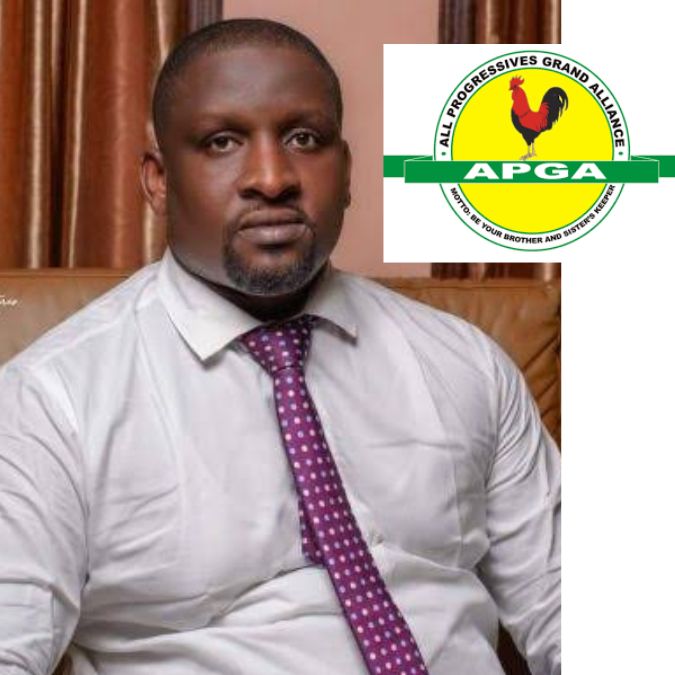A wake-up call to Independent National Electoral Commission (INEC) and the Nigeria National Assembly on the need to review our electoral process and make it more efficient – Ghana Election in retrospect as opined by the All-Progressives Grand Alliance (APGA) National Chairman Barrister Sly Ezeokenwa – Written by NDUKA ANYANWU
The recently concluded presidential election in Ghana, our next-door neighbour, presents a wake-up call to INEC and the National Assembly on the need to review our electoral process and make it more efficient.
As we reflect on the recent Ghanaian elections, it’s imperative that we, as Nigerians, take a critical look at our own electoral process. The All-Progressives Grand Alliance (APGA) National Chairman,
Barrister Sly Ezeokenwa, has emphasized the need for the Independent National Electoral Commission (INEC) and the Nigeria National Assembly to review
our electoral process and make it more efficient.
Ghana’s Electoral Success: A Benchmark for Nigeria Ghana’s electoral process has been hailed as a model for African democracies. The country’s electoral commission has implemented various reforms, including the use of technology to enhance voter registration and verification processes. These reforms have contributed significantly to the credibility and transparency of Ghana’s elections.
Nigeria’s Electoral Challenges: A Call to Action
In contrast, Nigeria’s electoral process has been marred by various challenges, including voter apathy, electoral violence, and logistical issues. The 2023 general elections highlighted some of these challenges, with many Nigerians expressing dissatisfaction with the electoral process.
The Way Forward: Implementing Electoral Reforms
To address these challenges, INEC and the National Assembly must work together to implement electoral reforms. Some of the key areas that require reform include:
1. Voter Registration and Verification: Implementing a more efficient voter registration and verification process, using technology to reduce errors and enhance transparency.
2. Electoral Logistics: Improving electoral logistics, including the
transportation of electoral materials and the deployment of electoral officials.
3. Electoral Security: Enhancing electoral security, including the
deployment of security personnel and the implementation of
measures to prevent electoral violence.
4. Voter Education: Implementing voter education programs, to enhance voter awareness and participation.
Conclusion
The Ghanaian elections have shown us that it’s possible to have a credible and transparent electoral process in Africa. It’s time for INEC and the National Assembly to take a cue from Ghana and implement electoral reforms that will enhance the credibility and transparency of our electoral process. As Barrister Sly Ezeokenwa has emphasized, this is a wake-up call for INEC and the National Assembly to act now and ensure that our electoral process is more efficient and effective.




